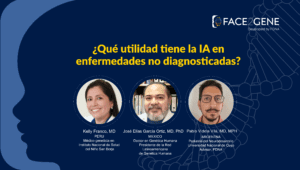Artificial intelligence has increasingly become the basis for advancing precision medicine. Tomorrow, at the ReWork Deep Learning in Healthcare Summit in Boston, MA, FDNA CEO Dekel Gelbman will be featured among other thought leaders—Cansu Canca, Founder and Director of the AI Ethics Lab, and Adrian Gropper, CTO at Patient Privacy Rights—to discuss balancing ethics and efficiency and how to develop a successful AI platform that can be seamlessly integrated into any organization while still abiding by ethical requirements.
Ethics and efficiency aren’t necessarily on opposite ends of the spectrum, and the panel, “How to Balance Ethics and Efficiency When Applying AI in Healthcare,” will seek to define each and how they relate. The panel will touch on topics involving the prevalence of ethical implications in healthcare compared to other industries, the main ethical concerns affecting the progression of health tech how these issues are being tackled, and whether or not efficiency should affect ethical decisions.
But what else is there to be aware of when integrating AI into your organization? Key aspects include:
Data Collection
AI is only as good as the data it’s trained on. Therefore, it’s crucial to have access to varied data to properly train an AI platform and better its performance. When trained on different populations, the result is a more ethnically equitable platform with increased accuracy of results, and can lead to earlier diagnosis of disease as well as discovery of new ones.
Protecting Personal Information
Patient privacy and security are of the upmost importance in any healthcare organization, especially when involving AI. There is a growing need for regulation to ensure solutions meet certain standards—HIPAA and GDPR are helpful in guiding the industry in how to approach privacy. Specifically, it’s important to make sure that all data that’s handled is de-identified before it’s used. One way to be successful in this is by processing raw data automatically on the cloud. The result is a completely de-identified dataset that cannot be reverse-engineered to identifiable information.
Improving Clinical Workflows
Efficiency in the clinical setting aids in streamlining the diagnostic process, ultimately leading to more timely treatments and better care. With AI, the workflows of clinicians are greatly improved by making it easier to access necessary data, better understand it, and work with outside parties, among other benefits. A common misconception is that AI is a threat that will replace the human element, but rather it’s a complimentary tool that will only enhance a clinician’s insights and expertise.
Be sure to check out the panel tomorrow and stay on top of new trends and developments for AI in healthcare!



